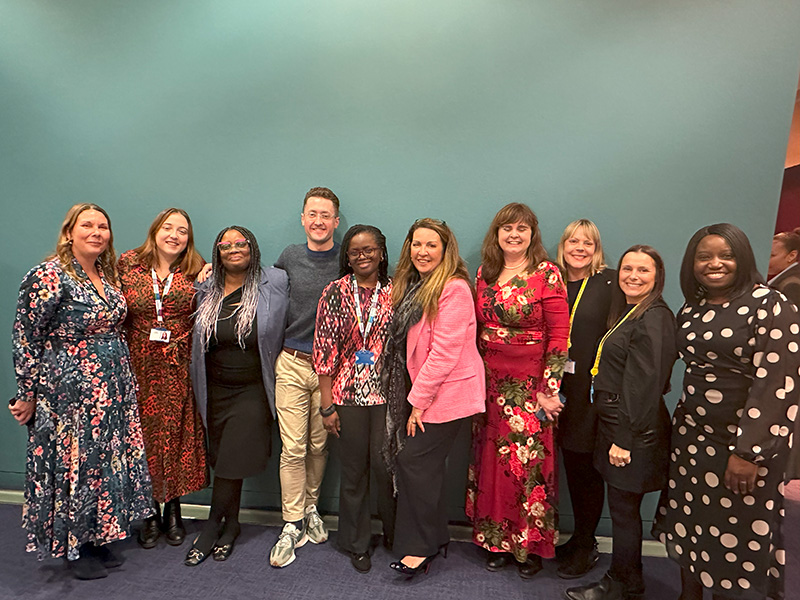Charlotte Gregson, MD UK&I, COMATCH
 This year has brought about a phenomenal amount of changes to us all. From the way we shop to how we interact with others.
This year has brought about a phenomenal amount of changes to us all. From the way we shop to how we interact with others.
Major cultural shifts have taken place all while simultaneously underlining the value of what is important to us by forcing us to take stock of time spent differently from what had previously been the case.
Nowhere is this more acute than in the world of work. When daily operations were momentarily suspended and we were largely forced to work remotely , it was not without disruption – we’ve all seen the video conferencing calls disturbed on live TV and probably experienced something similar ourselves. Though, while amusing in isolation, the disturbances, interruptions, IT troubles and back-catalogue of challenges we have faced are symptomatic of the wider issue around how the world has been working and what this looks like as we head into a new year.
Establishing a new working equilibrium
The drive to remote working has empowered employees like never before. Businesses that were traditionally reluctant, or not set up for, a remote working environment had little choice but to embrace it. Similarly, employees used the time that had previously been eaten up commuting or travelling to invest in other tasks – either personally on hobbies and juggling childcare/homeschooling; or professionally, working to a schedule that better suited the job or their productivity. So while there remains a clamour from quarters of both employers and employees alike to get back to the office, reverting to “back to normal” is unlikely to happen.
Instead the focus has changed to ensuring that the transition to a new working environment is smooth and that any negative impacts to; output, team morale, productivity and team mental health amongst others, are identified and mitigated. A process which will bring an element of disruption itself as a new working equilibrium is established based on the changes of the last year.
Human capital comes to the fore
For businesses, work will need to be done to ensure all employees are well-positioned to either safely work on site, or continue to work on a remote and flexible basis. It will also mean establishing new practices and processes for identifying key talent, as well as managing the workforce to ensure that it remains balanced and motivated outside of a workplace environment.
In turn, the need for employees to cultivate a support network to replace the daily office collective should be encouraged and aided. This is especially critical because business success will rely on a talent model that accommodates for change and getting the right people in the right role, quickly. This will require a shift from employees who need to become comfortable with new ways of working, and knowing when to ask for, and leverage access from new flexible platforms to an independent highly skilled workforce; while businesses will need to identify any resistance and find ways to overcome it.
Innovate to recuperate
As businesses navigate a way forward and move into recovery they will be looking for faster outcomes and with that will come innovation. Using technology as an enabler, people and businesses will need to make better, quicker decisions like, leveraging digital platforms for resource flexibility, expediting projects and driving improvements to legacy working practices. It is this necessity for flexibility, speed, and ensuring the right people are in the right role that will thrust the role of the independent consultant to the fore of businesses in 2021.
While the value consultants bring to the table has never been in doubt, the new modus operandi of both businesses and people is going to be a best-of-both-worlds scenario, combining a greater demand for what independents can offer with an environment where fluidity and flexibility is desired. One of the key strengths of consultants is that their breadth of experience can bring best practices to the table, the application of which will be key in rapid recovery. Indeed, speed is also a prerequisite with consultants able to jump in and get to work quickly without the need for rigorous, expensive or lengthy recruitment cycles.
A point of no return
But all of this only matters if we don’t lose sight of the learnings from this year. To prioritise what is important and to work in a manner that works for us as individuals. Time, freedom, flexibility and choice will be the pillars of the new economy and, whether consultant, employer or employee, finding the best and most suitable combination of these factors will be the bedrock of business as the “new normal” simply becomes convention.
We have reached a point of no return. Reverting to type is not, and should not, happen. As we stand on the precipice of a new year, a new vaccine and fresh hope for a better 2021, the events of 2020 have thrust flexibility to the fore and changed how we work forever.
WeAreTheCity covers the latest female centric news stories from around the world, focusing on women in business, careers and current affairs. You can find all the latest gender news here.
Don’t forget, you can also follow us via our social media channels for the latest up-to-date gender news. Click to follow us on Twitter, Facebook, Instagram, and YouTube.








